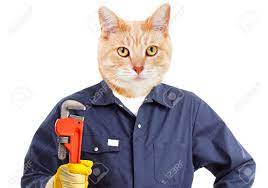
You’re writing a book, article or story and want to publish. Now you’re looking for a good editor. What are some “must-haves” for any editor you hire?
Writing Tip for Today: Here are some tips for finding the editor you need:
Refining Your Needs
If you’ve written, rewritten and done as much self-editing as you know how, it’s tempting to think you don’t need any outside help. If you publish traditionally (with a publisher who offers an advance/royalty contract), you’ll be assigned at least one and possibly two different editors. First, you’ll work with a developmental, substantive or macro editor. Later, you’ll have a copy or line editor. But what about self-publishing?
Ideally, you’ll hire editor(s) with the same kinds of skills as the traditional houses. Many in-house editors also free-lance, and these people are usually pros who understand all aspects of publishing. If you consider a free-lance editor, the first thing you’ll want to do is to ask for a sample edit (usually a page or two) and a list of other customers whom you can contact as references.
Why go to some much trouble? Although an editor may have a slick website and contain testimonials, the fact is that there aren’t any formal credentials to be an editor. Anyone can claim to be an editor. If you try to save money by hiring your husband’s aunt who was an English teacher for a hundred years, you may be disappointed. Correcting typos and grammatical errors are important but good editing must begin with that big picture look.
Big Picture Chops
Competent macro or developmental editors aren’t as concerned with the small stuff as they are with how your work hangs together. These editors can spot and evaluate your thematic elements, where your story slows too much, is inconsistent or repetitive. This type of editor helps your work become more cohesive as well as lend depth or texture to your efforts.
If you write fiction, your editor should point out character arcs and story arcs, tension levels and symbols, scenes that drag or feel shallow or unresolved. Many times, we write not recognizing how the work appears from a reader’s viewpoint. Storyboarding may give you clues to the forest instead of the trees, but the editor is objective and is in fact an early reader.
If you are writing nonfiction, your developmental editor should help you stay on track with your theme or reader promise. We can write down rabbit tunnels without even realizing it, dropping our theme in ways that would make readers feel confused or dissatisfied. A sharp-eyed developmental editor helps you lift your prose to a higher level by pressing you to keep delivering on your opening premise.

A good editor presses you to deliver on your opening premise.
Recommendations and Cost
Some macro editors also do copyediting, but I like to keep these tasks separate. The more comfortable any reader becomes with what you’ve written, the more likely that editor will miss some things just like you did. While developmental editing is vital, missing or misspelled words will sink your work too. So how do you go about a search for either type of editor?
First, ask other writers—preferably ones who have self-published their work. Get several names and then vet them as described above: ask for samples and a way to contact clients. Some hybrid publishers (who specialize in publishing without traditional deals) have editing built-in to their packages. However, beware of any company which requires a large buy-in or has had significant complaints.
When you find your editor, get a contract in writing that spells out exactly what services are included. How many revisions will the editor do? Are copyedits included? Does the editor use a program such as Word’s Track Changes? How much will editing cost and when is the money due? What if I’m not satisfied or disagree with the changes? Ask all these questions and more as you search for a competent editor for your precious baby. Let’s just hope you find one who’s not your husband’s aunt who taught English for a hundred years.




